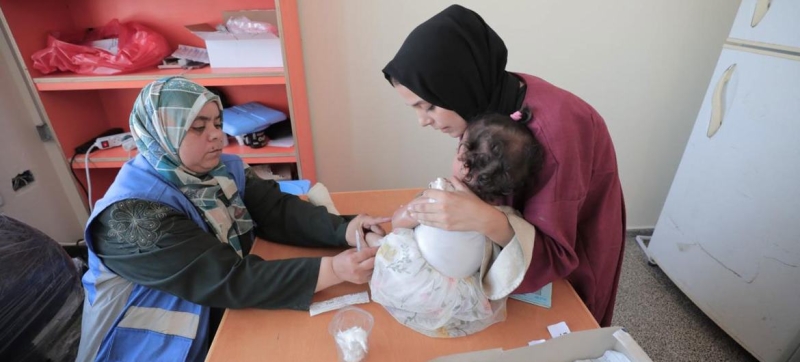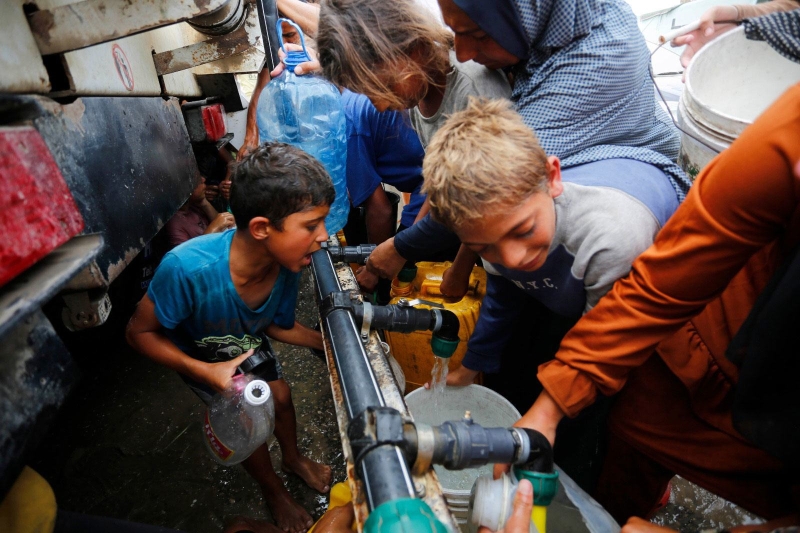
A woman with her child at a clinic in Gaza City. About 1,000 new hepatitis cases registered in Gaza every week Peace and Security
More children in Gaza are at risk of contracting hepatitis A due to mass displacement, overcrowded shelters, and a lack of clean water, soap and other hygiene products, UN humanitarian agencies warned on Tuesday.
Ten months of conflict, limited humanitarian access, and a lack of adequate health care and preventive measures have created conditions for the widespread spread of diseases, including hepatitis A, especially among children.
Spread of Hepatitis
According to the United Nations Refugee Agency (UNRWA), between 800 and 1,000 new cases of hepatitis are registered every week at UNRWA health centres and shelters across Gaza. The number of documented cases of hepatitis A has increased from 85 before the war to almost 40,000 cases since the war began. UNRWA provides diagnostic, awareness-raising and counselling services. There is no specific treatment for hepatitis A.
“The hepatitis A outbreak is spreading amid the war in Gaza. Families are being forced to flee their homes and live in appalling and inhumane conditions in overcrowded camps and shelters. They lack clean water, hygiene kits and proper waste and sewage management,” said UNRWA Health Programme Manager in Ghada Al-Jadba.
Household Waste
The United Nations Development Programme (UNDP) estimates that waste is piling up in more than 140 makeshift dumpsites, posing serious health and environmental risks, including a surge in diarrhoeal diseases and acute respiratory infections.

Gaza lacks clean water.
Since October 7, nearly 1 million cases of acute respiratory infections have been recorded, as well as 575,000 cases of acute watery diarrhea and more than 100,000 cases of jaundice. The real number is likely much higher. Collapse of waste management system requires urgent response, UNDP warns.
Risk of polio epidemic
In a bid to prevent a polio epidemic in Gaza, UN aid workers on Tuesday renewed their call for a ceasefire so they can begin a mass vaccination campaign.
Read also:
WHO to send one million doses of polio vaccine to Gaza
Speaking to reporters in Geneva, World Health Organization (WHO) spokesman Christian Lindmeier said at least At the very least, it is necessary to ensure safe access for medical and other humanitarian supplies. “Otherwise, vaccines will be sitting like many other supplies at the border, either on the Rafah side or at other checkpoints inside or outside Gaza,” he added.
When a child receives a full course of vaccinations, the risk of contracting paralyzing polio is “negligible,” said James Elder, a spokesman for the United Nations Children’s Fund (UNICEF). He stressed that vaccination rates in Gaza were “very high” before the war.
